Despite a border with China, nation has kept confirmed cases low through quarantining, contact tracing, testing – and propaganda
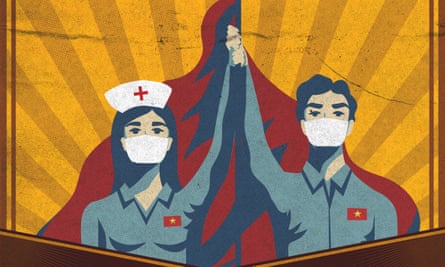
A masked healthcare worker stands valiant as a soldier, flanked by a bold slogan proclaiming that “to stay at home is to love your country”. Beneath, fine print implores residents to declare symptoms or report anyone escaping quarantine.
The poster, by artist Le Duc Hiep, is just one of numerous art forms to emerge from Vietnam – from viral hand washing songs to state stamps – that reflect the war-time spirit many in the country are invoking as they try to contain the virus.
With its archetypal propaganda aesthetic, nationalistic tone and heroic figures, one might assume Hiep’s poster was created by a communist state’s information ministry. In reality, he chose a design he felt would resonate with people to create a retrofitted PSA for those not following the rules.
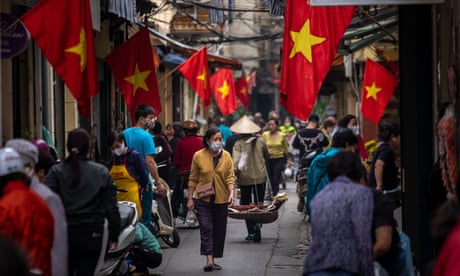
“After the government called for people to stay at home to help prevent Covid-19, I was browsing social networks and saw many people still gathering and going out to coffee shops and restaurants … that really bothered me,” Hiep says.
“I wanted to make something that can go viral, raise awareness and inspire people to do the right thing,” he adds. “I chose the propaganda style because it’s familiar to Vietnamese people and this style always invokes patriotic emotions.”
Hiep is not the only Vietnamese invoking war-era sentiment when depicting the pandemic. Pham Trung Ha, an acclaimed painter hailing from Vietnam’s older “golden age” of artists, did collaborate with the government. Ha joined forces with the ministry of health and Vietnam Stamp Company to work on two designs, each with the aim of “sending clear messages of solidarity in the fight against Covid-19.” One shows medical workers busy testing for coronavirus; behind them a clenched fist rises, symbolising resistance and defiance.
[twitter id=”1244111711281373184″]
The authorities have also called on the nation’s painters to submit posters designs. Despite undergoing treatment for cancer, 73-year-old artist Luu Yen The submitted two designs to Vietnam’s culture ministry, both of which were accepted and now hang over city streets. “Painting propaganda posters has been my hobby since the 60s and 70s when Vietnam focused on reuniting the country and building socialism,” he says. “At this time, you could see huge propaganda paintings everywhere in my country.”
“Although I am in poor health at the moment and the deadline was tight, I decided to join this project to lend a helping hand to everybody in this war. If we cannot be at the frontline, all artists can support in our own way by delivering information through propaganda paintings,” he added.
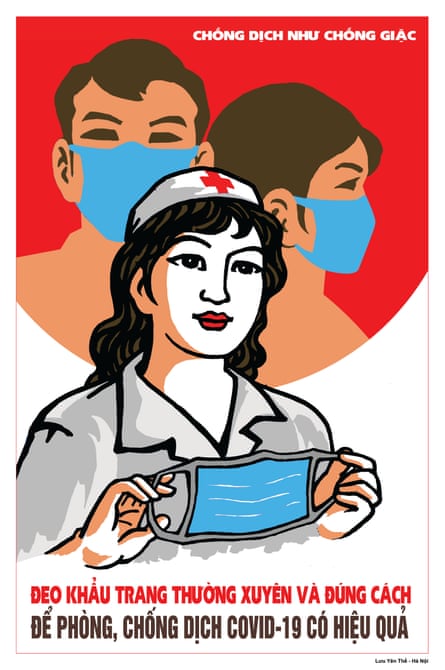
Such messaging, along with early action and contact tracing helped the nation avoid the levels of suffering seen in Europe and keep cases to mere hundreds. As is the case in many countries that lack capacity for mass testing, the number of infections is likely to be higher than official figures suggest, but after 88,000 tests, only 245 people have been confirmed to have covid-19. No deaths have been recorded. The country has focused on isolating anyone with links to a known case, as well as new arrivals, and has quarantined more than 67,000 people. A nationwide lockdown was also introduced on 1 April.
There are harsh punishments for those who stray from official messaging or break the rules, enforced through the country’s strong surveillance systems and a culture where, as Hiep’s poster suggests, people are encouraged to report wrongdoing. Officials are handing out fines to those posting fake news online or going out for non-essential reasons in the capital. Meanwhile, signs have appeared in Ho Chi Minh City warning those not using face masks – now compulsory in major cities – that if they infect another with a dangerous tropical disease, they could face up to 12 years in prison. Discrimination against foreigners in Vietnam, who are often seen as carrying the virus, is also on the rise; reports of hotel cancellations or refusal of service in shops have become commonplace.
Yet the general feeling, and certainly from particular artists, is of camaraderie. Huynh Kim Lien and Phung Nguyen Quang, founders of KAA Illustrations, featured doctors, nurses and military officers in a watercolour painting in order to send thanks to the front line. At this time, they say, art is the only way for us to connect with others.
Artists in Vietnam, like Kim Lien, are resolute in their response: “In Vietnam, the government says we are at war with the virus,” she says, “So, as artists, we do our job in a war: we draw.”
Source: The Guardian
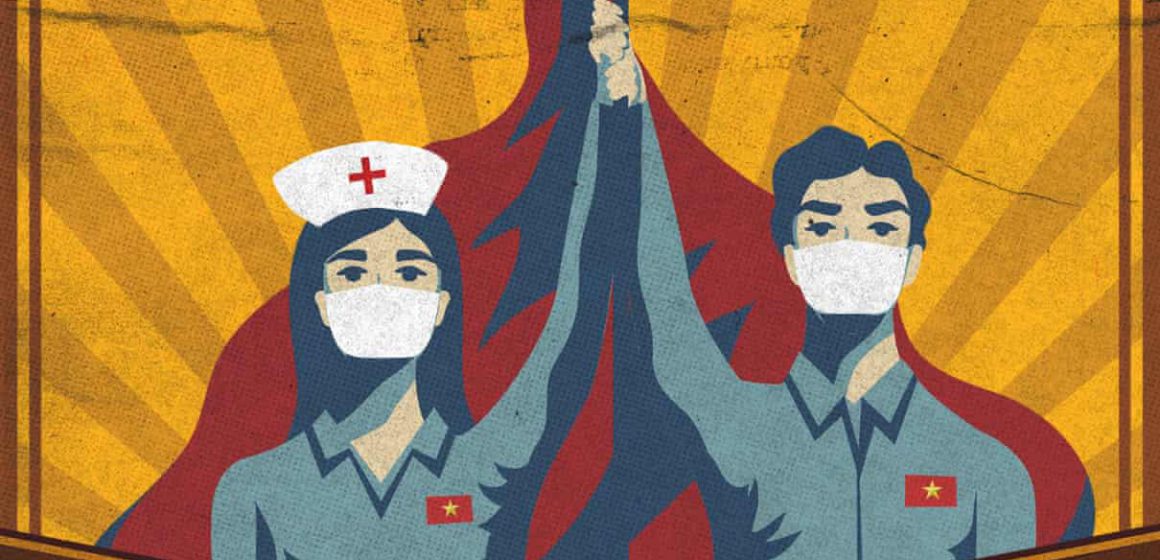
Leave a Reply